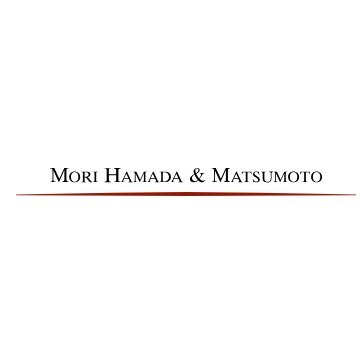Best Bankruptcy Lawyers in Chiyoda-ku
Share your needs with us, get contacted by law firms.
Free. Takes 2 min.
List of the best lawyers in Chiyoda-ku, Japan
About Bankruptcy Law in Chiyoda-ku, Japan
Bankruptcy law in Japan is designed to address the situation where individuals or companies are unable to repay their debts to creditors. In Chiyoda-ku, Tokyo, which is the political and economic heart of Japan, the legal framework aims to provide a fair and orderly procedure for debt resolution. The process involves the liquidation or reorganization of the debtor's assets, depending on the type of bankruptcy filed. The main statutes governing bankruptcy in Japan include the Bankruptcy Law, the Civil Rehabilitation Law, the Corporate Reorganization Law, and the Special Liquidation Law.
Why You May Need a Lawyer
There are several common situations where individuals or businesses in Chiyoda-ku might require legal help in bankruptcy. These include facing severe financial difficulties, being unable to meet debt obligations, needing to negotiate with creditors, or requiring assistance in filing for bankruptcy protection. Additionally, understanding the complex bankruptcy laws in Japan and navigating the legal system requires expert guidance to ensure the best possible outcomes.
Local Laws Overview
Key aspects of local laws relevant to bankruptcy in Chiyoda-ku involve the procedural steps for filing bankruptcy petitions, the conditions under which different forms of bankruptcy (such as personal bankruptcy, corporate reorganization, or civil rehabilitation) can be initiated, and the rights of creditors and debtors throughout the bankruptcy process. One notable feature is the distinction between voluntary and involuntary bankruptcy, where the former is initiated by the debtor and the latter by the creditors. Legal professionals in Chiyoda-ku are well-versed in these local nuances, ensuring compliance and effective navigation of the bankruptcy process.
Frequently Asked Questions
1. Can all debts be discharged through bankruptcy in Japan?
Not all debts can be discharged. Certain obligations, such as taxes, alimony, and penalties for crimes, cannot be eliminated through bankruptcy.
2. How does personal bankruptcy differ from corporate bankruptcy?
Personal bankruptcy applies to individuals and can lead to the liquidation of assets to pay off debts or a repayment plan under court supervision. Corporate bankruptcy focuses on businesses and involves either liquidation or reorganization.
3. What is civil rehabilitation?
Civil Rehabilitation is a procedure aimed at allowing the debtor to continue their business or personal financial activities while repaying debts under a rehabilitation plan approved by the court.
4. Will I lose all my assets if I file for bankruptcy?
Not necessarily. Exemptions apply to certain personal assets, allowing debtors to retain them even after filing for bankruptcy.
5. How long does the bankruptcy process take in Japan?
The duration varies depending on the complexity of the case but typically ranges from several months to a few years.
6. Can a foreigner file for bankruptcy in Japan?
Yes, foreigners can file for bankruptcy in Japan if they have debts within the country, though the process may involve additional complexities.
7. What impact does bankruptcy have on my credit score?
Bankruptcy will significantly lower your credit score and can affect your ability to obtain credit for a number of years.
8. Can bankruptcy stop creditor harassment?
Yes, filing for bankruptcy initiates an automatic stay that stops most collection actions by creditors.
9. Are there alternatives to bankruptcy?
Yes, alternatives include debt negotiation, financial restructuring, and out-of-court settlements.
10. How can I file for bankruptcy in Chiyoda-ku?
Filing for bankruptcy in Chiyoda-ku requires submitting a petition to the Tokyo District Court, along with necessary documents. It's highly recommended to engage a lawyer for guidance through this process.
Additional Resources
For those seeking legal advice on bankruptcy in Chiyoda-ku, the Tokyo Bar Association offers resources and referrals to qualified lawyers. The Japan Federation of Bar Associations also provides information and support for individuals facing bankruptcy. Additionally, the Tokyo District Court handles bankruptcy filings and procedures, serving as a primary governmental resource.
Next Steps
If you're considering bankruptcy and need legal assistance, the first step is to consult with a bankruptcy lawyer in Chiyoda-ku. They can provide an assessment of your situation, explain your options, and guide you through the legal process. Make sure to gather all relevant financial documents and information about your debts and assets prior to your consultation to facilitate a comprehensive discussion and advice tailored to your specific circumstances.
Lawzana helps you find the best lawyers and law firms in Chiyoda-ku through a curated and pre-screened list of qualified legal professionals. Our platform offers rankings and detailed profiles of attorneys and law firms, allowing you to compare based on practice areas, including Bankruptcy, experience, and client feedback.
Each profile includes a description of the firm's areas of practice, client reviews, team members and partners, year of establishment, spoken languages, office locations, contact information, social media presence, and any published articles or resources. Most firms on our platform speak English and are experienced in both local and international legal matters.
Get a quote from top-rated law firms in Chiyoda-ku, Japan — quickly, securely, and without unnecessary hassle.
Disclaimer:
The information provided on this page is for general informational purposes only and does not constitute legal advice. While we strive to ensure the accuracy and relevance of the content, legal information may change over time, and interpretations of the law can vary. You should always consult with a qualified legal professional for advice specific to your situation.
We disclaim all liability for actions taken or not taken based on the content of this page. If you believe any information is incorrect or outdated, please contact us, and we will review and update it where appropriate.









